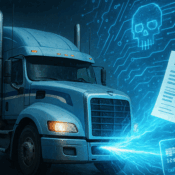
Motor Trade business continuity: 3 tips to combat change
Managing a diverse and agile supplier network is now a top priority in the auto industry and essential to remaining competitive.
No matter if shifting to the production of electric vehicles, dealing with the current semiconductor shortage or mitigating everyday disruptions, the automotive OEM and aftermarket supply chains depend heavily on their supplier networks. In order to remove friction, increase visibility, and ensure resiliency for the future, automotive business networks require innovation and modernisation.
Do you have a plan for ensuring that your organisation is agile, resilient, and adaptable enough to face the challenges it faces? As Charles Darwin established, it is not the strongest species that survives, but the one that can adapt to change.
This principle can be seen at work in the auto industry today: Tesla has emerged as a market leader in the plug-in and battery electric car market in just a few short years. As a comparison, market-leading automotive manufactures have experienced sales declines of 20 to 30% in North America during the course of the pandemic.
You cannot pivot without a robust B2B network or simplified supplier relationships. Trends and changes are difficult to adapt to quickly. In order to capitalise on renewed demand, you cannot readily access new suppliers. This is especially true in the automotive industry, where hundreds of suppliers and partners are fundamental to a company’s success.
In order to ensure business continuity during periods of extreme change and position your organisation for long-term growth, here are three simple steps you can take:
- Automate supplier onboarding - One major reason companies are unable to adapt adequately enough is the inability to identify and integrate the appropriate suppliers in a timely manner. Ensure that suppliers and partners can be well-vetted, integrated and quickly onboarded to your network. Solutions that automate vetting and onboarding can get suppliers online up to 75% faster. Those weeks and months saved, across hundreds of relationships, can be used for other innovative, value-driven work.
- Increase flexibility and efficiency of B2B collaboration - Auto manufacturers manage an increasingly complex, multi-enterprise ecosystem, but it’s typically overwhelmed by disparate systems and disconnected processes. To compete in today’s hyper-connected global economy, you need to digitise and automate connectivity as much as technology will permit. In the process, you’ll streamline and simplify complex processes. Having real-time, digitally-connected relationships with the suppliers that matter most to your business is essential to remain competitive. Modern business networks, whether on cloud, hybrid-cloud or even on premises, can provide those fast, real-time, digital connections and communications required to optimise the value you get out of your supplier base. They can help you break down walls and silos between organisations, streamline processes, and enable the bi-directional flow of data and information. Clear and quick communication and data exchange are the lifeblood of collaborative supplier relationships.
- Modernise technology - Most automakers have a patchwork of supply chain and B2B network technologies that were never designed for today’s dynamic environment. That’s why focusing on modernising your B2B network offers so much upside, like gaining the scalability and agility to keep pace with changing business and technology needs.
When you modernise your B2B platform by moving to a hybrid cloud or managed service, you can begin to transition from homegrown or acquired processes and applications that cause inefficiencies and errors.
Best-in-class B2B networks can automate transactions, provide real-time data visibility and capitalise on AI to provide you with intelligent alerts on exceptions and disruptions, and more. Digital B2B networks are also proven to decrease document management tasks by 85%, prevent 80% or more of current errors, and cut unplanned downtime by 99%.
Other blogs which may be of interest:
Motor trade underinsurance Disruption in supply chains for motor tradeAny questions? Please don’t hesitate to contact one of our team.
steven.gillespie@ascendbroking.co.uk | Office: 07719 069267






